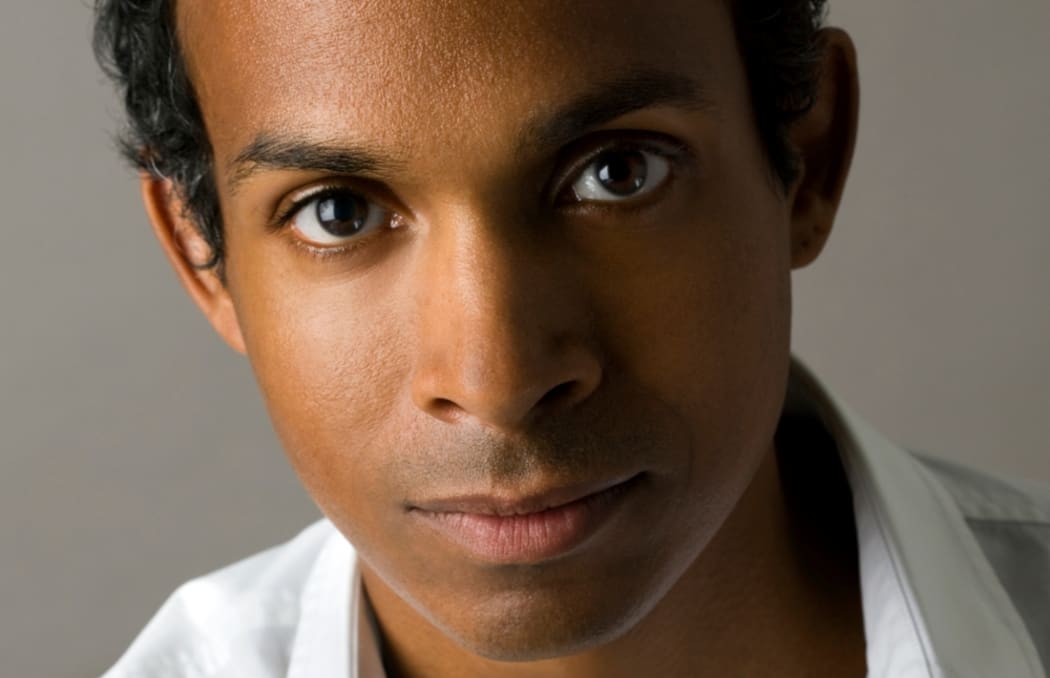How do you speak to your child about truths of the world, when those truths include the racism that she will face as a young woman of colour in Canada?
That’s the question Canadian Writer and academic David Chariandy grapples with in his latest non-fiction work.
It opens with a story of a trip to the grocery store with his then three-year-old daughter.

David Chariandy Photo: supplied / AWF
“I was at a grocery store with the same kind of fruit that my own parents, working class immigrants, would laugh at me for indulging in and it was just a special occasion, I wanted to go out with my daughter and enjoy some chocolate cake and a meal.
“We were having a great time the two of us, I remember the moment vividly because she was laughing, and I remember the chocolate cake between her teeth. We were thirsty as a result of this dessert and I stood up and began to fill up our glasses of water at a fountain very nearby.”
Chariandy noticed a woman also approaching the fountain and as a gesture of politeness he stopped filling his glass and allowed her to.
“She seemed to be angry at that gesture, she began to fill her water and she turned to me and said ‘well, I was born here, I belong here’.”
He describes this as a minor moment of racialisation - things that build up and which overtime have a psychological impact, shaping you as a person.
“I happen to be born in Canada, as my daughter was born in Canada, but that’s irrelevant frankly, wherever we were born we’re entitled to a glass of water, we’re entitled to everyday dignity.”
Faced with the choice of confronting the woman or staying quiet, he decided to say nothing and continue to enjoy the moment with his daughter.
“As a man of colour, as a man of African descent it is a risk to display anger in public, there are consequences for that behaviour.
“I am a very good actor, I have a lifetime of not allowing others to know when I’ve been hurt by something specially about race.”
At 13-years-old, his daughter witnessed the election of Donald Trump and then his Muslim ban.
With real fear in her eyes, she asked whether the same thing could happen in Canada.
A few days later a man professing admiration for Trump walked into a mosque in Quebec and executed six people as they prayed.
“In that moment I thought, what do I say, what could I say.”
Chariandry decided to write her a letter.
That letter is his latest non-fiction work, I’ve Meaning to Tell You, which has been described as an intimate and profound meditation on the politics of race today.
Children need their parents to be open, to humbly offer their own stories in the hope that they can take away something useful from them, says Chariandry.
“I think we all need to do this work, I think at times a special burden needs to be placed on those who have not felt the pain and pressure of the effects of racism.
“What do I as a father who in Canada is seen as a racial minority, someone who has black ancestry and South Asian ancestry, say to a daughter who in some ways is even more complex in terms of ‘racial makeup’?"
Not telling a young person the truth is often a misguided effort to protect them, he says.
“I think children read things that are unspoken from gestures, from silences, from the quietness of grief.
“You don’t have to be called a particular name to know that you’re not, in fact, welcome here.
“I confronted that many times in writing this book, I wanted the book to be in the voice of someone displaying great paternal love for his daughter but at the same time I want to be truthful about the world as I see it.
“I want to share a legacy not only of hardship and sorrow, but a legacy of resilience and creativity and ultimately of hope.”
Chariandry’s daughter was involved in all stages of the book’s completion.
“I sought permission in the first place from her to write this book, she granted me that permission but then insisted that as each chapter was completed she would get the chance to look at it with an eye towards accuracy – was this in fact how things looked from her perspective?
“Ultimately this is a father’s perspective, I know my daughter will someday share her perspective which will be very different to mine, it will be filled with insights that I cannot still imagine.
“This land of tomorrow, when does it begin because I often fear that tomorrow will be the same as today and today the same as yesterday.”
David Chariandy is a guest at this year's Auckland writers festival, details here.

